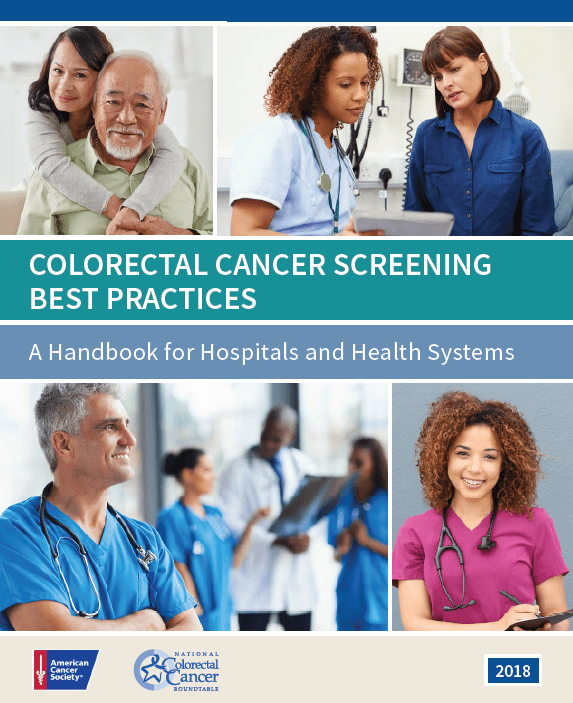Colorectal Cancer Screening Best Practices: A Handbook for Hospitals and Health Systems
The purpose of the Colorectal Cancer Screening Best Practices: A Handbook for Hospitals and Health Systems is to provide advice on the design and delivery of a variety of effective CRC screening interventions to help all hospitals and health systems strengthen their colorectal cancer screening efforts. With their expertise in both improving health and in serving as leaders in their communities, hospitals and health systems are uniquely positioned to play a pivotal role in increasing colorectal cancer screening for those they serve. The handbook is divided into four sections: Critical Steps, Case Studies, Implementation, and Tools & Resources. It is intended to provide you with needed information drawn from real life examples about how to ultimately improve CRC screening rates within the hospital and health system setting.
A corresponding webinar was held in July 2018 announcing the release of the handbook and included presentations from two health systems featured in the guide. View the Colorectal Cancer Screening Best Practices for Hospitals and Health Systems webinar.
Many thanks to the hospitals and health systems featured in the guide for sharing their time and their tremendous expertise, as well as to handbook’s expert advisory group, which was chaired by Drs. Michael Potter and Dorothy Lane, Co-Chairs of the NCCRT Professional Education and Practice Implementation Task Group.
This handbook is dedicated to the memory of Marie LaFargue.
Explore More

Increasing Colorectal Cancer Screening in Rural Communities: A Practical Guide
This guidebook is designed to support key community partners in understanding and overcoming the unique challenges and common barriers to CRC screening faced in rural communities.

American Cancer Society: A Colorectal Cancer Screening Guide for Cancer Coalitions
This new guide from the American Cancer Society will help build your coalition's capacity to address colorectal cancer screening.

Clinician’s Reference: Stool-Based Tests for Colorectal Cancer Screening
This revised resource is designed to introduce (or reintroduce) clinicians to the value of stool-based testing for colorectal cancer.
